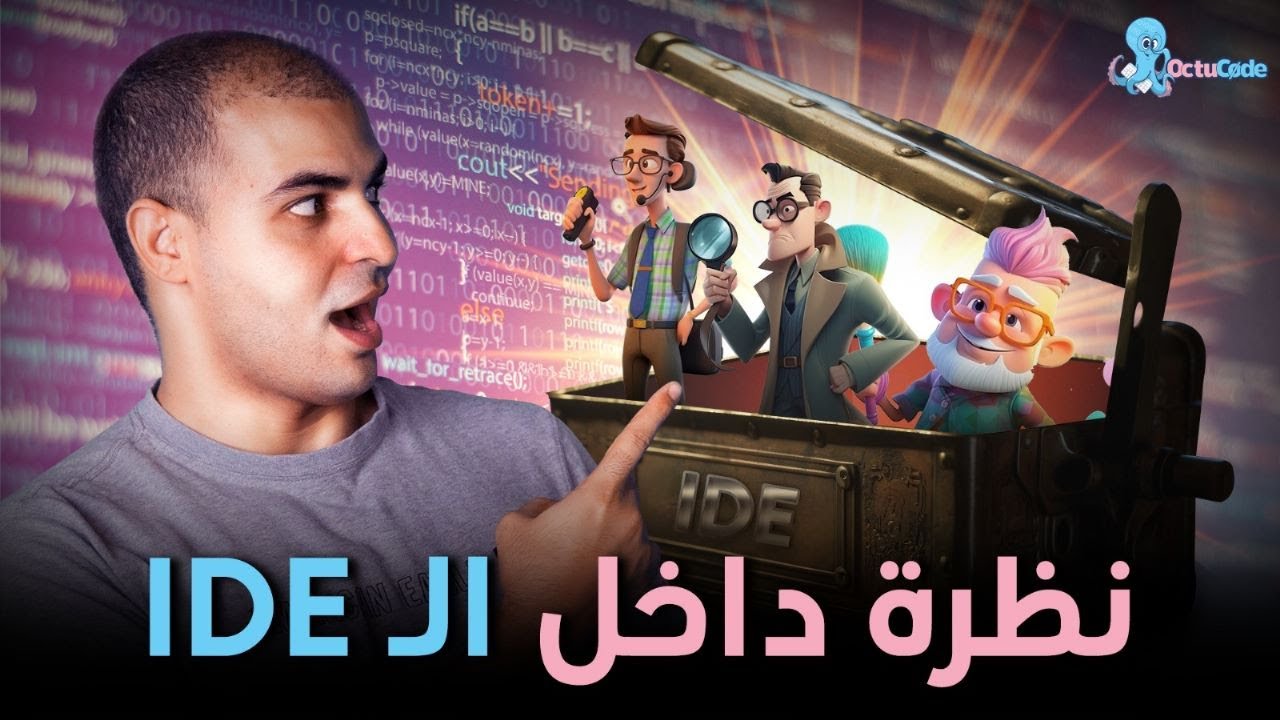Code Interpreter.... but OPEN SOURCE? Open Interpreter's Mike Bird on OS Projects, Mindset + More
Summary
TLDRIn this engaging conversation, Mike Bird discusses the potential and challenges of Open Interpreter, an open-source alternative to OpenAI's code interpreter. He shares his journey from discovering Open Interpreter to becoming a part of its team, highlighting the importance of open-source contributions in AI. Mike emphasizes the need for a mindset shift towards exploration and experimentation when working with AI tools. He also touches on the impact of AI in various industries, the balance between innovation and safety, and the future of AI technology in making tasks more accessible and improving quality of life.
Takeaways
- 🚀 Open Interpreter is an open-source version of OpenAI's code interpreter, aiming to bridge the gap between natural language and computer control.
- 🌐 The project was launched in September and has since attracted a technical audience interested in leveraging its capabilities.
- 📱 Mike Bird was the first person to successfully run Open Interpreter on a phone, which gained attention and led to further involvement with the project.
- 🔍 Open Interpreter is still in its early stages (version 0.2), and the team is focused on developing the product to fulfill its potential.
- 🛠️ The tool is currently available via a command-line interface or as a Python library, catering to a tech-savvy audience.
- 🔧 Open Interpreter's auto-run feature is disabled by default, ensuring a human is always in the loop to monitor and guide the AI's actions.
- 🤖 The potential applications of Open Interpreter are vast, from coding assistance to automating mundane tasks, improving productivity and quality of life.
- 🌟 Mike Bird's passion for open source stems from the belief in sharing creativity and enabling others to build upon shared knowledge without starting from scratch.
- 🌐 The open-source community, particularly through platforms like Discord and GitHub, plays a crucial role in supporting and advancing projects like Open Interpreter.
- 🔄 Open Interpreter's approach to AI is about removing barriers and making technology more accessible and inclusive for everyone.
- 🌱 The future of Open Interpreter includes the development of a desktop app and the possibility of running the tool completely locally on various hardware devices.
Q & A
What is the main purpose of Open Interpreter?
-Open Interpreter is an open-source tool that allows Local AI to run on your computer, serving as an interface between natural language and computer control to accomplish various tasks.
How did Mike Bird first get involved with Open Interpreter?
-Mike Bird discovered Open Interpreter shortly after its launch and started experimenting with it. He became the first person to run it successfully on a phone, which gained some attention. Eventually, the creator of Open Interpreter, Killian, invited Mike to join the team.
What is the current state of Open Interpreter in terms of development?
-Open Interpreter is still in its early development stages, with the current version being 0.2. It is primarily targeted at a technical audience and is available via a command-line interface tool or as a Python library.
What are some of the challenges faced by Open Interpreter?
-One of the main challenges is that it is very technical and intimidating for most people due to its command-line interface. Additionally, the tool is still in its infancy and needs further development to fulfill its potential.
How does Mike Bird use AI in his daily life?
-Mike Bird uses AI primarily for coding and offloading small, tedious tasks. He also uses it to learn new tools and for automating processes, such as setting up his work environment with a Stream Deck.
What is the importance of mindset shift for people using open-source tools?
-The mindset shift involves a willingness to explore, investigate, and experiment with new tools and models. Users should understand that these tools are not fully polished and that best practices are still being defined.
How does Mike Bird stay positive about AI and its potential despite the negative headlines?
-Mike focuses on the positive aspects and potential benefits of AI, such as advancements in medical technology and improvements in quality of life. He believes that the positive outcomes outweigh the negative and that society should embrace the technology responsibly.
What are some resources Mike Bird recommends for staying updated on AI news?
-Mike recommends following selected accounts on Twitter, subscribing to newsletters like Ben's Bites, and joining Discord communities like the Open Interpreter Discord to stay updated on AI news and trends.
What is the significance of the open-source approach in the development of AI tools like Open Interpreter?
-The open-source approach allows for collaboration and rapid innovation. It enables developers to build upon each other's work, share knowledge, and create tools that can benefit a wider audience without being restricted by proprietary barriers.
What are the future plans for Open Interpreter?
-There are plans to release an open-source equivalent of the Rabbit R1, a hardware device that would allow Open Interpreter to run on a physical device, making it easier for users to interact with and utilize the tool.
Outlines

This section is available to paid users only. Please upgrade to access this part.
Upgrade NowMindmap

This section is available to paid users only. Please upgrade to access this part.
Upgrade NowKeywords

This section is available to paid users only. Please upgrade to access this part.
Upgrade NowHighlights

This section is available to paid users only. Please upgrade to access this part.
Upgrade NowTranscripts

This section is available to paid users only. Please upgrade to access this part.
Upgrade NowBrowse More Related Video

Improve Your AI Skills with Open Interpreter

OpenAI Assistants API Tutorial - Playground & NodeJS

China, A Step Closer to AGI with OPEN SOURCE!!!

Compiler and Interpreter: Compiled Language vs Interpreted Programming Languages

87. OCR GCSE (J277) 2.5 Compilers & interpreters

شرح الفرق بين IDE و Code Editor: تعلم البرمجة من الصفر ٥
5.0 / 5 (0 votes)